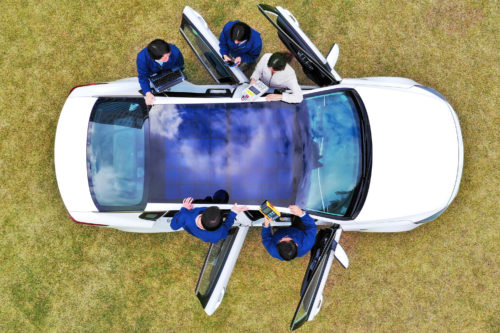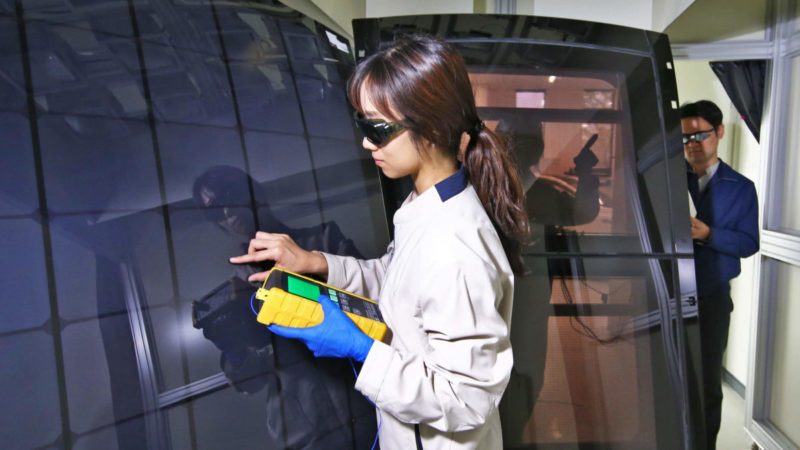

Hyundai Motor and Kia Motors yesterday announced plans to introduce a new solar charging technology on selected Hyundai Motor Group vehicles. The company plans to install the electricity-generating solar panels on the roof or the hood of vehicles, and will support internal combustion, hybrid and battery electric vehicles with additional electrical power, increasing fuel efficiency and range while cutting down on carbon dioxide emissions.


Hyundai has revealed that the company is working on the development of three kinds of solar roof charging systems. The first-generation system, which is set to be launched from 2019, is being developed for hybrid vehicles. The designs will implement a structure of mass-produced silicon solar panels that are mounted on an ordinary roof. The company claims that the system can charge 30 to 60 percent of the battery per day, depending on the weather condition and the environment.
The second-generation system is for internal combustion engine vehicles and will feature a semi-transparent solar roof. Differentiated from the first-generation system, the second-generation system will provide a transmissive panel options. The semi-transparent solar panels will applied to a panoramic sunroof, maintaining transparency whilst charging an electric vehicle’s battery or an additional battery mounted on an internal combustion engine vehicle. Applying solar charging systems to internal combustion engine vehicles will contribute to the increase in vehicle exports, by enabling vehicles to adhere to global-scale environmental laws that regulate CO2 emissions.
And the third-generation system currently undergoing testing, will be added to the bonnet and roof of battery electric vehicles as a combined structure so as to increase the output.
“In the future, various types of electricity generating technologies, including the solar charging system, will be connected to vehicles. This will enable them to develop from a passive device that consumes energy to a solution that actively generates energy,” said Jeong-Gil Park, Executive Vice President of Engineering Design Division of Hyundai Motor Group., who has developed this technology. “The paradigm of the vehicle owner will shift from that of a consumer to an energy prosumer,” he added.
In July, Hyundai revealed plans to launch an electric vehicle in India by 2019 in a bid to gauge the effectiveness of the country’s electric vehicle market. The car that the company is planning on introducing next year will be the Hyundai Kona electric.
India’s ethanol initiative has helped India save Rs. 1,26,210 crore in foreign exchange by reducing…
Noida-based green energy leader NexGen Energia Ltd has secured a $1 billion equity investment commitment…
As Odisha takes firm steps toward a just transition from fossil fuels to renewable energy,…
Bio-Integrated cladding for greener cities, an innovative solution by a 29-year-old Indian architect, has won…
In a novel move, Farmwatt Innovation has launched a long-term training and capacity-building initiative focused…
State owned Bharat Petroleum Corporation Ltd (BPCL) has joined hands with GPS Renewables Pvt Ltd…